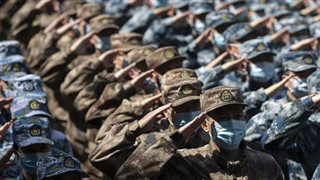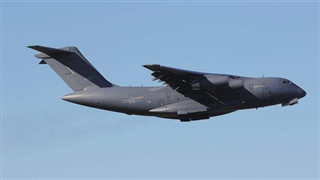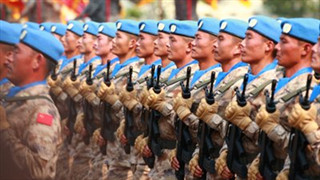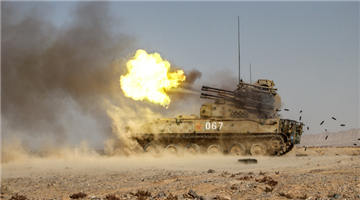By Zhu Yongbiao and Liu Yantong

With the dramatic changes in the situation of Afghanistan, the humanitarian crisis in the country has triggered wide attention and concern. The humanitarian crisis facing Afghanistan has deep roots. After the Afghan Taliban took power, the political and economic crises, as well as the epidemic and drought issues over the past two years, have further expanded the humanitarian crisis in fields such as food, refugees and women's rights.
As a result, Afghanistan is undergoing a comprehensive and systemic crisis, which is directly related to the US. If Washington does not assume its due responsibilities and obligations, Afghanistan' systemic crisis can hardly be tackled.
Afghan refugees are the third-largest displaced population in the world, following those from Syria and Venezuela. However, because of political factors and refugees' repeated cross-border flows, the UN data on Afghan refugees have a large margin of error. Despite repeated warnings from the UN, the international community has not truly realized the severity of the humanitarian crisis in Afghanistan and its possible long-term negative effects.
At the pediatric intensive care unit of the International Committee of the Red Cross (ICRC) at Mirwais Regional Hospital in Kandahar, the number of children suffering from malnutrition, pneumonia and dehydration more than doubled from mid-August to September, according to a report by ICRC official website. The report also said severe and moderate global acute malnutrition is up 31 percent around Kandahar compared to the same period in 2020.
The Director General of the International Organization for Migration António Vitorino said in early November that, "Conflict and insecurity, grinding poverty exacerbated by an economy in freefall, severe drought and the COVID-19 pandemic have pushed Afghanistan to the brink of collapse."
Since the Afghan Taliban took power, the UN and several other international organizations have repeatedly warned that Afghanistan's economy is on the brink of collapse, which could further exacerbate the humanitarian crisis in the country.
Afghanistan's security situation has not achieved a sharp improvement, either. According to media reports, in Afghanistan, the number of the Islamic State's attacks has increased from 60 strikes in 2020 to 334 as of November in 2021.
As of the third quarter, some countries including China and humanitarian organizations have provided assistance to tens of millions of Afghans, but there are still a large number of Afghans who need help, and the current various assistance projects are not long-term, stable, or sustainable. Although some countries have promised assistance, there is still a big gap to addressing the actual needs, and the implementation and actual utilization are not optimistic. It can be said that there has never been a power vacuum in Afghanistan. But there is often a vacuum of attention and assistance, and these vacuums often derail other efforts.
The Afghan Taliban said days ago that they have generated income of about 26.9 billion Afghanis ($288 million) and they would begin paying the overdue salaries of government workers. The UN estimated that as much as $220 million per month is needed to meet the food and nutrition needs of almost 23 million people in Afghanistan. In this context, the income provided by the Taliban is only a drop in the bucket.
The US claimed in October that the total US humanitarian aid in Afghanistan and for Afghan refugees in the region amounted to nearly $474 million in 2021, but it didn't clarify how much of the aid really went to the hands of the Afghan people and how much actually flowed back to the US.
US President Joe Biden said the US would "maintain the fight against terrorism in Afghanistan" in a speech defending his decision to withdraw troops from Afghanistan in late August. This demonstrated that the goal of the US withdrawal was to reduce the input in Afghanistan, but the US' general aim to control the Afghan situation and continue to maintain its influence in the surrounding areas remains unchanged.
The US has frozen nearly $9.5 billion in assets belonging to the Afghan central bank, which also has aggravated the humanitarian crisis in Afghanistan. The United Nations Development Program underlined in a recent report that due to lack of liquidity, the economic cost of a banking system collapse - and consequent negative social impact - "would be colossal."
Some Americans claimed that the humanitarian crisis in Afghanistan was already serious before the withdrawal of the US troops, arguing the troops pullout is not the cause for the humanitarian crisis. But their argument has just proven that in the past 20 years, the US didn't regard Afghanistan's economic development and livelihood improvement as a major task or even a secondary task. Afghanistan's political and economic crises have been exacerbated by the irresponsible US withdrawal, leading to an expanding local humanitarian crisis. As the manipulator of the Afghan affairs, it is justified to call the US the root cause of the systemic crisis in Afghanistan.
Zhu Yongbiao is a professor at the Research Center for the Belt and Road, and the Center for Afghanistan Studies of Lanzhou University. Liu Yantong is a master candidate at Lanzhou University.











